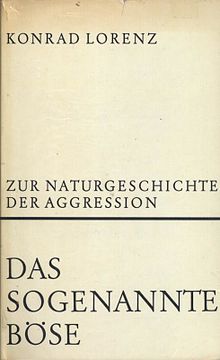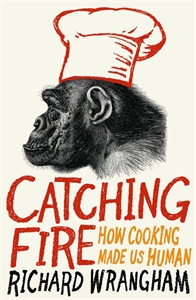
Konrad Zacharias Lorenz was an Austrian zoologist, ethologist, and ornithologist. He shared the 1973 Nobel Prize in Physiology or Medicine with Nikolaas Tinbergen and Karl von Frisch. He is often regarded as one of the founders of modern ethology, the study of animal behavior. He developed an approach that began with an earlier generation, including his teacher Oskar Heinroth.

Erich Seligmann Fromm was a German-American social psychologist, psychoanalyst, sociologist, humanistic philosopher, and democratic socialist. He was a German Jew who fled the Nazi regime and settled in the United States. He was one of the founders of The William Alanson White Institute of Psychiatry, Psychoanalysis and Psychology in New York City and was associated with the Frankfurt School of critical theory.

Aggression is a behavior aimed at opposing or attacking something or someone. Though often done with the intent to cause harm, it can be channeled into creative and practical outlets for some. It may occur either reactively or without provocation. In humans, aggression can be caused by various triggers. For example, built-up frustration due to blocked goals or perceived disrespect. Human aggression can be classified into direct and indirect aggression; while the former is characterized by physical or verbal behavior intended to cause harm to someone, the latter is characterized by behavior intended to harm the social relations of an individual or group.

Sarah Hrdy is an American anthropologist and primatologist who has made major contributions to evolutionary psychology and sociobiology. She is considered "a highly recognized pioneer in modernizing our understanding of the evolutionary basis of female behavior in both nonhuman and human primates". In 2013, Hrdy received a Lifetime Career Award for Distinguished Scientific Contribution from the Human Behavior and Evolution Society.

On Aggression is a 1963 book by the ethologist Konrad Lorenz; it was translated into English in 1966. As he writes in the prologue, "the subject of this book is aggression, that is to say the fighting instinct in beast and man which is directed against members of the same species."
Selfishness is being concerned excessively or exclusively for oneself or one's own advantage, pleasure, or welfare, regardless of others.

The domestication of vertebrates is the mutual relationship between vertebrate animals, including birds and mammals, and the humans who influence their care and reproduction.
The killer ape theory or killer ape hypothesis is the theory that war and interpersonal aggression was the driving force behind human evolution. It was originated by Raymond Dart in his 1953 article "The predatory transition from ape to man"; it was developed further in African Genesis by Robert Ardrey in 1961. The theory gained notoriety for suggesting that the urge to violence was a fundamental part of human psychology. It is associated with the hunting hypothesis, also developed by Ardrey.
Deference is the condition of submitting to the espoused, legitimate influence of one's superior or superiors. Deference implies a yielding or submitting to the judgment of a recognized superior, out of respect or reverence. Deference has been studied extensively by political scientists, sociologists, and psychologists.

Richard Walter Wrangham is an English anthropologist and primatologist; he is Professor of Biological Anthropology at Harvard University. His research and writing have involved ape behavior, human evolution, violence, and cooking.
The field of psychology has been greatly influenced by the study of genetics. Decades of research have demonstrated that both genetic and environmental factors play a role in a variety of behaviors in humans and animals. The genetic basis of aggression, however, remains poorly understood. Aggression is a multi-dimensional concept, but it can be generally defined as behavior that inflicts pain or harm on another.

Demonic Males: Apes and the Origins of Human Violence is a 1996 book by Richard Wrangham and Dale Peterson examining the evolutionary factors leading to human male violence.
Psychoanalytic criminology is a method of studying crime and criminal behaviour that draws from Freudian psychoanalysis. This school of thought examines personality and the psyche for motive in crime. Other areas of interest are the fear of crime and the act of punishment.
Profile Books is a British independent book publishing firm founded in 1996. It publishes non-fiction subjects including history, biography, memoir, politics, current affairs, travel and popular science.

Self-domestication is a scientific hypothesis that suggests that, similar to domesticated animals, there has been a process of artificial selection among members of the human species conducted by humans themselves. In this way, during the process of hominization, a preference for individuals with collaborative and social behaviors would have been shown to optimize the benefit of the entire group: docility, language, and emotional intelligence would have been enhanced during this process of artificial selection. The hypothesis is raised that this is what differentiated Homo sapiens from Homo neanderthalensis and Homo erectus.

Catching Fire: How Cooking Made Us Human is a 2009 book by British primatologist Richard Wrangham, published by Profile Books in England, and Basic Books in the US. It argues the hypothesis that cooking food was an essential element in the physiological evolution of human beings. It was shortlisted for the 2010 Samuel Johnson Prize.

Biosocial criminology is an interdisciplinary field that aims to explain crime and antisocial behavior by exploring biocultural factors. While contemporary criminology has been dominated by sociological theories, biosocial criminology also recognizes the potential contributions of fields such as behavioral genetics, neuropsychology, and evolutionary psychology.
The challenge hypothesis outlines the dynamic relationship between testosterone and aggression in mating contexts. It proposes that testosterone promotes aggression when it would be beneficial for reproduction, such as mate guarding, or strategies designed to prevent the encroachment of intrasexual rivals. The positive correlation between reproductive aggression and testosterone levels is seen to be strongest during times of social instability. The challenge hypothesis predicts that seasonal patterns in testosterone levels are a function of mating system, paternal care, and male-male aggression in seasonal breeders.
Evolutionary theodicies are responses to the question of animal suffering as an aspect of the problem of evil. These theodicies assert that a universe which contains the beauty and complexity this one does could only come about by the natural processes of evolution. If evolution is the only way this world could have been created, then the goodness of creation is intrinsically linked to the pain and evil of the evolutionary processes.
Sociodicy is the explanation and exploration of the fundamental goodness of human society. It seeks to provide an account for humans' general success in living together despite their propensity to selfishness, violence, and evil and despite the variation and difference seen across human populations.











